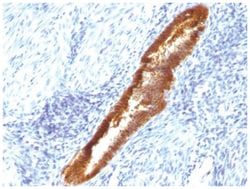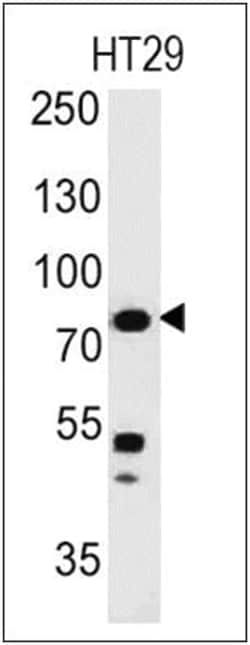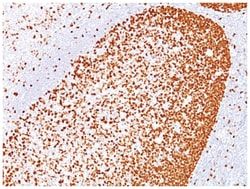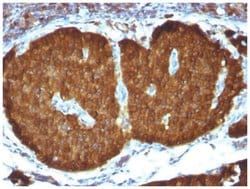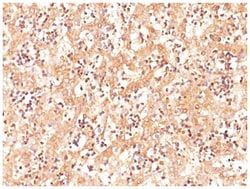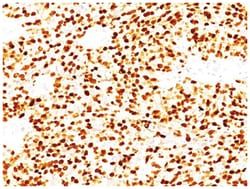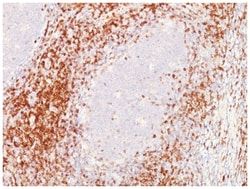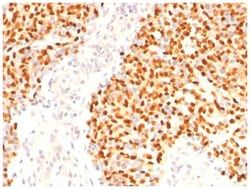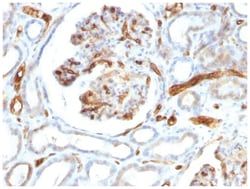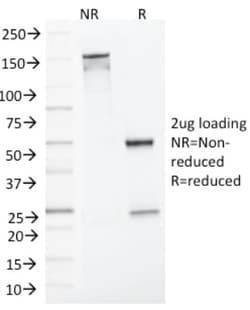ASRGL1 Antibody (CRASH/1289), Novus Biologicals™
Mouse Monoclonal Antibody
Manufacturer: Fischer Scientific
The price for this product is unavailable. Please request a quote
Antigen
ASRGL1
Dilution
Western Blot 0.5-1ug/ml, Flow Cytometry 0.5-1ug/million cells, Immunohistochemistry-Paraffin 0.5-1.0ug/ml, SDS-Page, Immunofluorescence 0.5-1ug/ml
Classification
Monoclonal
Form
Purified
Regulatory Status
RUO
Formulation
10mM PBS and 0.05% BSA with 0.05% Sodium Azide
Gene ID (Entrez)
80150
Immunogen
Recombinant human ASRGL1 fragment
Primary or Secondary
Primary
Content And Storage
Store at 4C.
Clone
CRASH/1289
Applications
Western Blot, Flow Cytometry, Immunohistochemistry (Paraffin), SDS-Page, Immunofluorescence
Conjugate
Unconjugated
Host Species
Mouse
Target Species
Human
Gene Alias
ALP1, ALPL-asparagine amidohydrolase, asparaginase like 1, asparaginase-like 1 protein, Asparaginase-like protein 1, CRASH, EC 3.5.1.1, FLJ22316, L-asparaginase
Gene Symbols
ASRGL1
Isotype
IgG
Purification Method
Protein A or G purified
Test Specificity
ASRGL1 (Asparaginase-like protein 1), also known as CRASH, is a 308 amino acid protein belonging to the Ntn-hydrolase family. Asparaginases utilize asparagine as a substrate to produce aspartic acid and ammonia. ASRGL1 has been identified as a autoantigenic protein that is present in the mid-piece of sperm after obstruction of the male reproductive tract. ASRGL1 is expressed highly in testis, but is also expressed in brain, kidney and gastrointestinal tissues. High levels of ASRGL1 have also been identified in ovarian, uterine and mammary tumors in comparison with normal tissues of the same origin.
Description
- ASRGL1 Monoclonal specifically detects ASRGL1 in Human samples
- It is validated for Immunohistochemistry, Immunohistochemistry-Paraffin.
